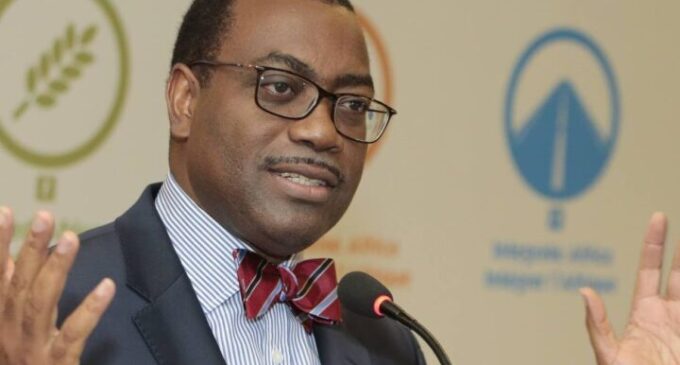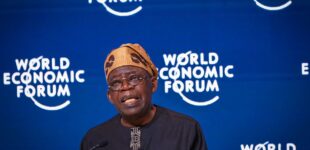Akinwumi Adesina: Africa vulnerable to commodity price volatility

Akinwumi Adesina, president of the African Development Bank (AfDB), says Africa is highly vulnerable to commodity price volatility.
According to a statement on Wednesday, Adesina spoke on sustainable trade and energy mix at the Sustainable trade Africa conference at the UAE Trade Center on Wednesday.
Adesina said due to the weak integration into global value chains, the best opportunity for Africa was to focus on intra-regional trade.
He added that the Africa Continental Free Trade Area (AfCFTA) is estimated to increase intra-Africa exports by over 81 percent by 2035.
However, Adesina said the continent needs to do more to improve in the area of manufacturing.
“While the total value of global trade is US$25.3 trillion, Africa accounts for just 3 percent of the total trade,” he said.
“However, Africa’s trade is dominated by the export of primary commodities, minerals, metals and oils. In spite of its enormous potential, Africa accounts for just 3 percent of global manufacturing.
“This makes the continent highly vulnerable to commodity price volatility.
“The free trade zone should, however, be turned into an industrial manufacturing zone to generate maximum benefits and improve development.
“It should also improve the emergence of competitive industrial value chains for regional and global markets.”
Adesina said Africa faced new challenges in exports even as the continent took advantage of these opportunities to build industrial platforms that could compete more in global value chains.
“This challenge is especially to Europe, Africa’s largest trading partner, with the EU Carbon Border Tax Adjustment Mechanism,” he said.
“This carbon tax will cover all goods from third countries not under the EU’s Emissions Trading System (ETS).
“This will significantly constrain the exports of value-added products such as cement, iron, steel, aluminium, and fertilisers.
“With Africa’s energy deficit and reliance on fossil fuels, especially diesel, by companies, Africa will be forced to export raw commodities again into Europe, which will further cause the de-industrialisation of Africa.”
According to Adesina, Africa can lose up to $25 billion annually due to the EU carbon border tax adjustment mechanism.
He said that while Africa would optimise its vast renewable energy sources, it would need to use natural gas as a transition fuel.
The AfDB boss also said to spur Africa’s drive towards energy transition, which would support greener industries and trade, the bank and partners are financing the $20 billion desert-to-power programme.
Adesina said the initiative would produce 10,000 megawatts of solar power for 11 countries in the Sahel zone and provide electricity for 250 million people.
“The AfDB, Africa50, and the Africa Union have also inaugurated the Alliance for Green Infrastructure in Africa (AGIA) to mobilise $500 million for project preparation and development,” he said.
“We have also mobilised US$10 billion for private sector investment in green infrastructure.”
Adesina called for support for Africa’s industrialisation, AfCFTA, integration into global value chains and a pragmatic, fair and just renewable energy transition.
















There are no comments at the moment, do you want to add one?
Write a comment